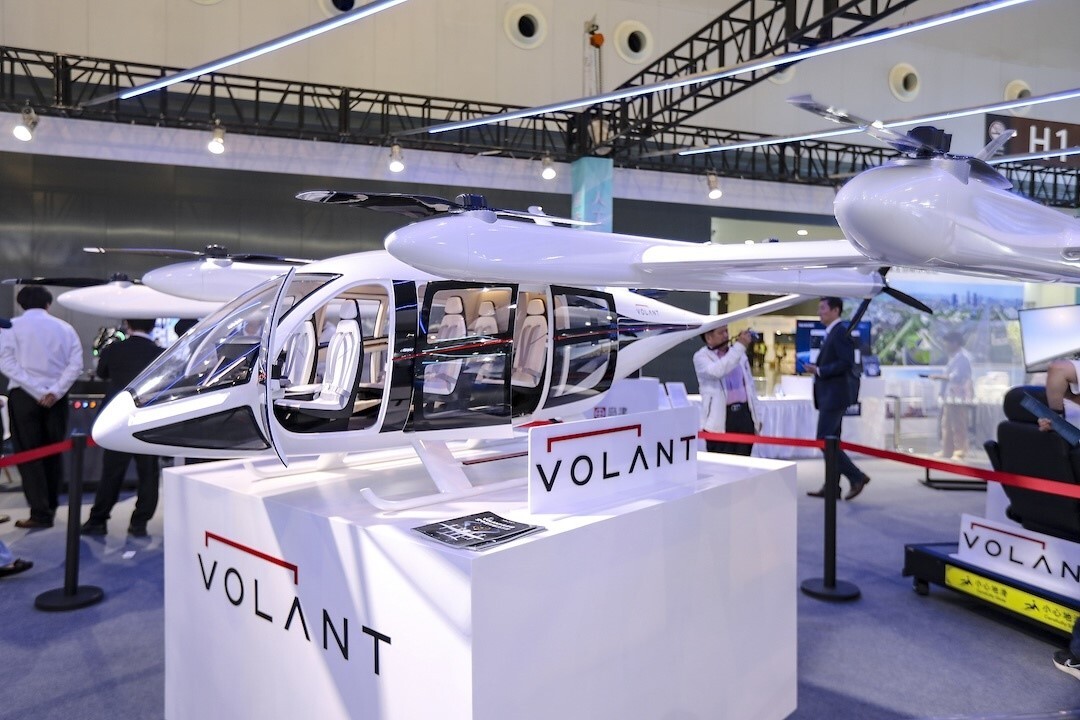

The recent RMB 12.5 billion (USD 1.74 billion) eVTOL (electric vertical take-off and landing) aircraft order secured by a Sichuan-based Chinese manufacturer is a significant boost to China's domestic aluminium value chain. This large-scale deal of 500 eVTOL marks an important breakthrough for "Made in Sichuan" aircraft, signalling China's strong entry into the global low-altitude aviation market.

Image Source : Shanghai Volant Aviation Technology Co., Ltd. (Volant)
At the inaugural International Low Altitude Economy Expo, Shanghai Volant Aviation Technology Co., Ltd. (Volant) entered a tripartite cooperation with Thailand's Pan Pacific Limited and China Aviation Technology International Engineering Co., Ltd. (AVIC Engineering).
It also signals global confidence in Chinese aerospace manufacturing and, at the same time, activates multiple stages of the aluminium industry from upstream mining and smelting to downstream alloy processing and advanced component manufacturing.
Over 60 per cent of an eVTOL's structure is aluminium
One of the most immediate effects will be increased demand across the aluminium production chain. As per information, over 60 per cent of an eVTOL's structure is aluminium.
At ~5 tons per aircraft, this order implies a demand of 2,500 tonnes, potentially boosting high-grade aluminium markets that could expand to 80 billion yuan by 2030. Chinese smelters and fabricators are likely to receive new orders, while extrusion and rolling mills will be pushed to deliver precise, aviation-grade products.
Also Read:Aerospace & aluminium: The secret behind high-flying efficiency
Other significant metal used –
Strengthening China's goal of self-reliance in advanced materials
This development also strengthens China's goal of self-reliance in advanced materials. The country still imports a significant portion of its aerospace-grade aluminium alloys. Though China is a dominant player in producing aluminium, the production of alloys with these advanced specifications is a much more complex and specialised process, often requiring technologies, equipment, and expertise that some domestic producers lack.
Aerospace-grade aluminium alloys require a high level of precision, purity, and specific alloy compositions that differ significantly from the standard grades produced by China's domestic aluminium smelters. These alloys are engineered for extreme strength, durability, and lightweight properties, essential for aerospace applications.
Why this deal is important
With the spotlight now on domestic production, this deal, signed on July 23 at the inaugural International Low Altitude Economy Expo, is expected to accelerate research, development, and production of high-performance alloys within China. Shanghai Volant Aviation Technology Co., Ltd. (Volant) entered a tripartite cooperation with Thailand's Pan Pacific Limited and China Aviation Technology International Engineering Co., Ltd. (AVIC Engineering).
It provides a major incentive for local companies to upgrade their manufacturing capabilities, invest in innovation, and reduce dependency on foreign suppliers. In addition to boosting production, the eVTOL deal will promote sustainability through advanced aluminium recycling.
Aircraft manufacturing, particularly in electric aviation, increasingly depends on certified, high-quality scrap aluminium. This will encourage China's recyclers to enhance their capacity and processes to meet aerospace standards, fostering a more circular economy within the metal value chain. It will also align with China's broader low-carbon industrial development goals.
Regionally, the Sichuan province, where the aircraft will be produced, stands to benefit from job creation, infrastructure development, and clustering of specialised aluminium and aviation enterprises. It will support the growth of small and medium-sized enterprises involved in alloy casting, CNC machining, and surface treatment. In the long term, the province could emerge as a key hub for aerospace aluminium components in China.
Finally, this order enhances China's strategic position in the global aluminium market. As the nation begins exporting full-scale eVTOL aircraft, it will also be exporting aluminium-intensive technology. This not only raises demand for domestically produced aluminium but also improves the international reputation of China's aluminium industry as a supplier of premium, aerospace-grade materials. In summary, this single aircraft order creates a ripple effect that strengthens every link of China's aluminium value chain, upstream, midstream, and downstream.
Also Read: China’s aluminium foil finds backdoor to the US? Vietnam & Thailand under DOC’s scanner
Responses








